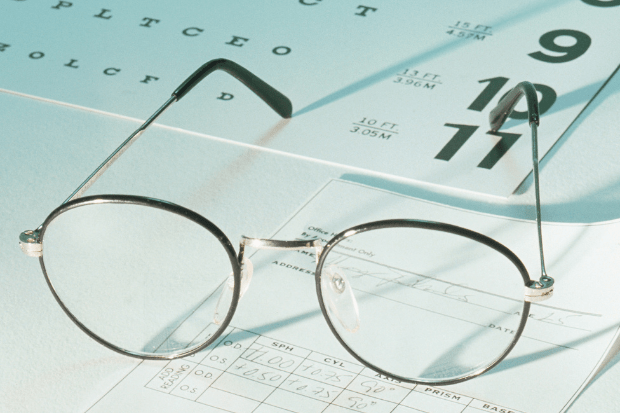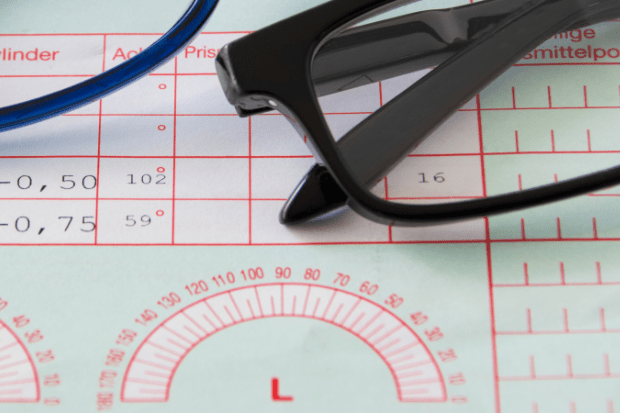How Long Do Prescription Glasses Last

Prescription glasses can last from a couple to several years, depending upon the quality of the materials, how well they are cared for, and the stability of your eyeglass prescription. With today’s technology in frames, lens materials, and coatings, prescription glasses are much more durable. Unfortunately, the stability of your prescription is impossible to control. Genetics, hobbies, occupation, education, age, and systemic and ocular diseases are factors that can affect the stability of your eyeglass prescription.
The lifespan of prescription glasses

By most optical manufacturing standards, the lifespan of a pair of glasses is considered to be two years. Depending upon the materials of the frame and lenses and how you care for them, they may last longer.
Factors that affect the lifespan of prescription glasses
The quality of the materials, the care you provide to your frame, and the stabilization of your eyesight are 3 factors that affect the lifespan. Purchasing a quality frame and lenses may cost more upfront but may save you more money over time.
Your prescription may change more rapidly or stabilize during different times in life. If you start wearing glasses as a child, your prescription tends to worsen throughout your teenage years. If your eyes start changing in your late teens or early twenties, your vision is likely affected by computer work, digital device use or reading. Eyeglass prescriptions tend to stop changing in the mid-twenties for most and will stabilize until early forties.
At the age of 41-43, a condition called presbyopia will affect your near vision. Near vision will worsen from 40 to 62-ish as the flexibility and structure of both the eye muscles and lens change. Yearly eye exams are recommended to ensure you are seeing your best and your eyes are healthy. Once your vision is stable, your prescription glasses will last longer.
Is it Ok to wear old prescription glasses?
Old glasses are best to use as a backup and to purchase a new pair every 1 to 2 years. While using an old pair of glasses will not damage your eyes, it may lead to headaches, eye strain, eye fatigue, and blurry vision. The prescription itself does not deteriorate, but the quality of the lens coating and lens material may. The temples of the frames and nose pads often become less comfortable with time.
The signs that your prescription glasses need replacing
Common signs your prescription glasses need replacing are degradations in the coatings, misshaping of the frame, or chemical changes to the frame’s parts. Blurry vision, headaches, eye fatigue, and squinting are all signs that it is time for an eye exam and a new pair of glasses.
Sign 1: Anti-reflective coating is spotty
Even the best anti-reflective or scratch coating will not last forever. The layers can break down with age resulting in spotty, smeary lenses. They may even appear to crack or look smudged without the ability to clean it out. Today’s lens coatings are much improved over previous lens generations, but proper care and the purchase of a premium anti-reflective coating will extend the lifespan of the lens.
Sign 2 : Your frame is stretched
Years of daily wear in combination with the frame’s materials can cause alterations to the fit of the frame. Some plastic materials expand with time, and even with heat application, they will no longer fit like they once did. Metal frames tend to hold their structure better, especially if made out of a high-quality metal like titanium.
Sign 3: Nosepad/temple rusting
With age and exposure to elements in the air and from your skin, the nose pads and temples of metal frames can begin to turn green or rust. The screw may become loose or stripped, making adjustments difficult. These changes indicate it is time to invest in a new pair of glasses.
Sign 4: Scratched lenses
If your lenses are scratched, it is time to get a new pair of lenses. Seeing through scratched lenses can be difficult, annoying, and frustrating, especially if the location is in your line of sight. Scratched lenses can affect your vision by scattering light and making it unsafe to drive at night. Scratches in the lenses cannot be buffered out and must be replaced.
Sign 5: Vision changes
Besides blurred vision, headaches, eye strain, eye fatigue, and pain behind or around the eyes can be symptoms of a change in your prescription. Vision changes are a sign you should see an eye doctor and update your prescription glasses.
Tips to extend the lifespan of your prescription glasses
Several frame and lens care tips can help extend the lifespan of your prescription glasses.
Tip 1: Don’t leave them in extreme weather conditions
Extreme heat can warp the frame shape and the lens coating. You should never leave your glasses or sunglasses in the car. High-index lenses for thick prescriptions are especially known for cracking after repeat exposure to heat.
Tip 2: Store in a protective case
Whenever your glasses are not on your face, they should be in your case. Protecting your glasses from the elements, pets, and children by storing them in a case may extend their lifespan. Glasses should never be placed in a shirt pocket or in a handbag without a case. Scratch-coating does not mean your lenses won’t scratch. It just offers enhanced protection.
Tip 3: Use the recommended cleaning products
Not every type of cleaning agent should be used on your lenses. Mild dish detergent or just soap and water are best at cleaning smudged lenses. Never use any cleaning agent with bleach or alcohol or rub with a rough fabric like a t-shirt when cleaning. Particles in the fabric clothing can cause scratches on the lens surface.
Tip 4: Remove your frames with care
Frames should always be removed from your face with both hands. If you take them on and off with only one hand, you are likely to stretch the temple or break the hinge. If you use both hands, less pressure is applied to one hinge, and your glasses will remain in better shape and fit better. The hinges tend to break or become loose on the side of your dominant hand because of repetition.
Conclusion
Though two years is considered the lifespan of a pair of glasses, purchasing quality products and properly caring for your glasses may help them last longer. Utilizing our tips for caring for your glasses will help extend their life. While wearing an old prescription will not damage your eyes, you may get headaches, and eye strain and may not see life as clearly as you should. It is best to have your eyes checked annually to see the world through the best lenses!
